There are times in the middle of the design process when I’ll show Brian, say, two different blue paint swatches, two different molding profiles, or even two different photos of dining tables and to him they are indecipherable. Brian has learned not to point out how similar they are (because they aren’t) but it’s at times hard for both of us not to laugh because they are virtually identical and I’m spending so much time obsessing over which is “right”. Many of you have commented similarly – that I’m clearly going a bit nuts during the design decision-making process and that I need to “calm down,” “take a step back,” etc. And it’s TRUE! I was/am losing it, but there are good reasons why, reasons I don’t apologize for. So let’s dive into it today: WHY is it so much harder for us to design our own homes?
But first, what got me thinking about this (again)… We started a new project recently – a transformative kitchen update that I’m excited to share with you. I hired Sarah (who was my assistant last year and left to go to design school) as the project manager to help me design/execute the partnership. Granted this is not a full kitchen remodel – it was meant to be fast, affordable, and not move any plumbing, electrical, or walls, but I kid you not – we made all the design decisions in 3-4 hours together (and then of course probably 40 hours in renderings/logistics/coordination/ordering, not including execution, project management, etc). And I’m legit so excited about the design. We didn’t phone it in, it feels fresh and beautiful. We chose the paint colors, the wallpaper, the hardware, the shelving style, etc all so quickly and it’s going to look pretty darn great. But it made me think, why, WHY does it take so much more time for me to design my own rooms? Why can I design someone else’s kitchen so quickly (and again, it’s going to be unique and special) and really belabor my own so much??? And I know I’m not alone.
We Have To Live Inside Of It – Including Our Mistakes/Regrets
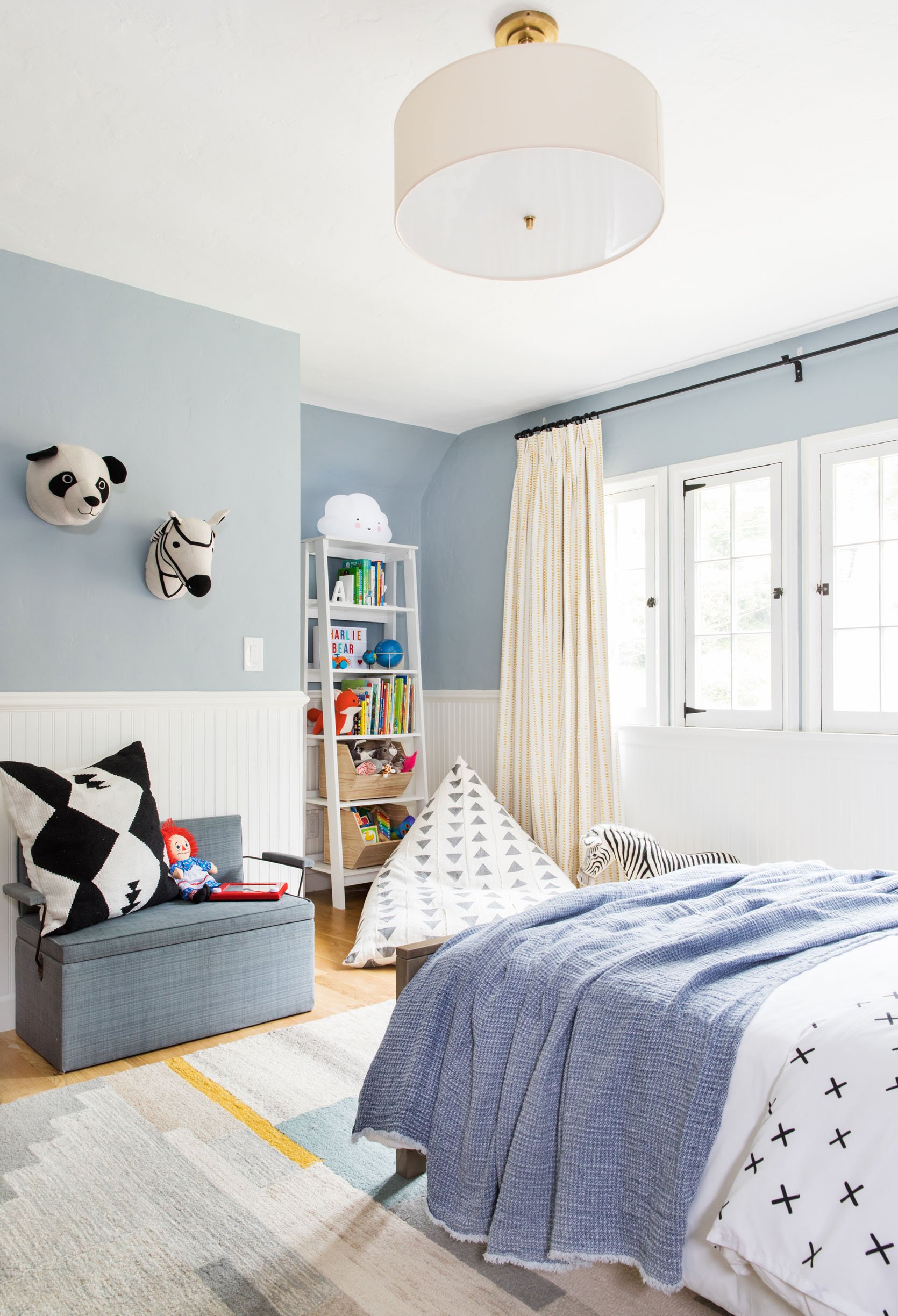
Imagine a musician being told that they were only able to listen to their recent album, or a chef being told they can only cook from their latest cookbook. What if a filmmaker could only watch their own movie over and over in their home? It’s not just the outward appearance of it all as “your work” to show the world, it’s being surrounded by it daily. Design is an art form, a creative expression, etc, not unlike many others – but the difference is that as the designer/homeowner you have to live inside it, every day, every hour, for likely years. I honestly don’t stress too much about decorating it because those things are easier to move around, but with the hard finishes, you bet I obsess. Do I want to stare at my own regret for years and years? Do I want to get sick of looking at something that I spent a lot of money on? Does a musician want to listen to an off-key note in a song over and over? Does an athlete want to watch a losing free throw over and over? NO. Sure, we might get over it (and have) or change it (and have) but the best thing you can do is to avoid this feeling in the first place. However, to do that you HAVE TO OBSESS ABOUT EVERY DETAIL. And watching someone obsess about details from afar, can seem like they are going nuts and eyes get rolled by those who don’t understand. But, like all other creative careers, it’s their craft, their creativity, and their job.
We Get Sick Of Things/Trends Faster
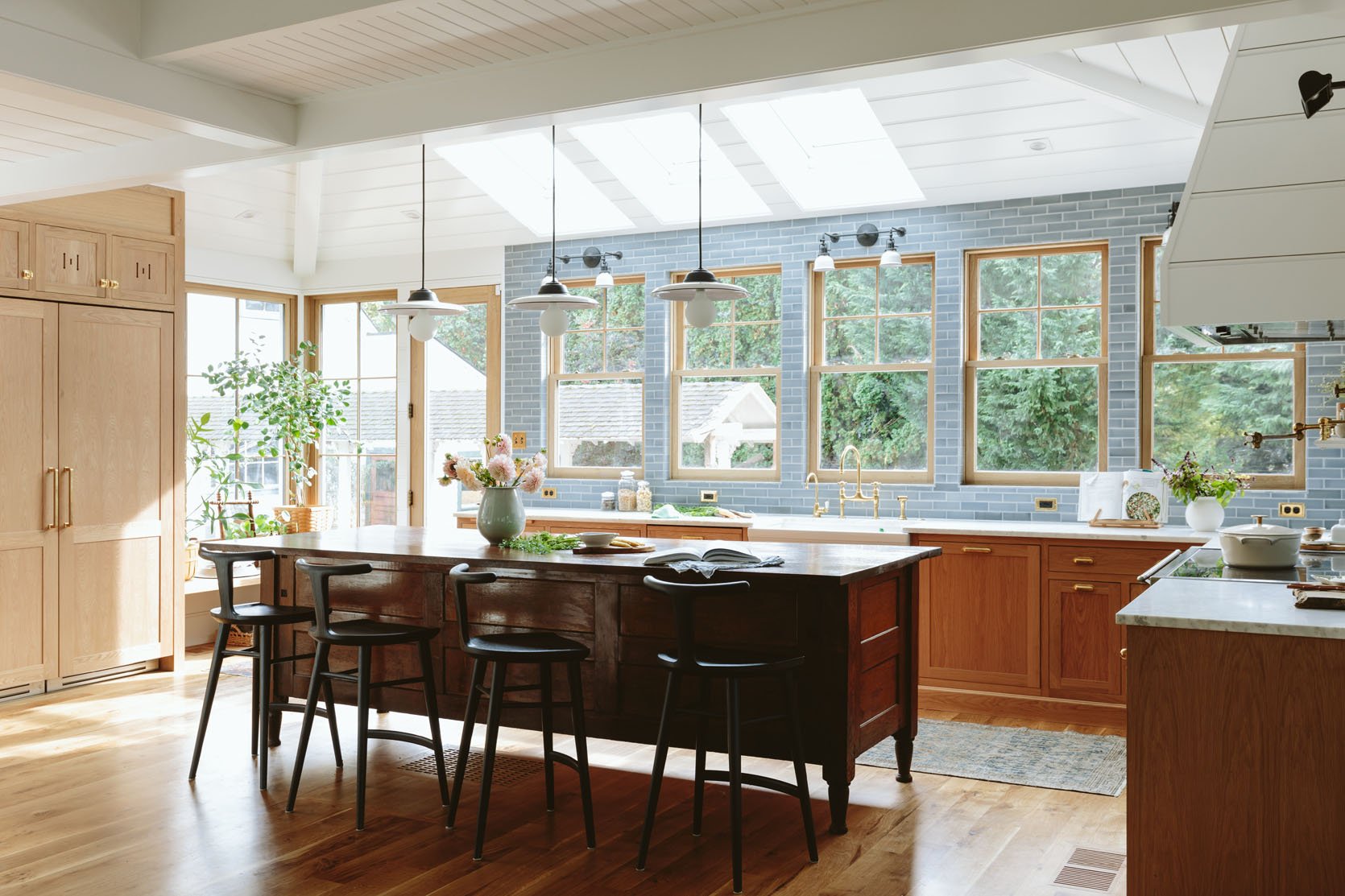
As designers/stylists/content creators, we see so much design both in person and on the internet that it’s easy to get sick of things faster (at least I do). We’ll see a new trend and it immediately EXPLODES, it’s everywhere and then it feels like it’s done (even if it has 2-4 more years of mainstream-ness). Same with colors/patterns – it makes committing to something bold far more difficult and playing it safe far easier. It makes me way more careful to ensure that in two years I’m not going to be like, “Well, I can’t look at that any longer”. This is why I play it a bit safe with my own home with the permanent finishes, that I might not in others (especially if who I’m designing for wants something bolder). I don’t want to look at a room and say “It’s so 2022”. This is why I love trends for furniture/decor (nothing is wrong with a trend and no one is immune to them) but I’m so much more careful with tile/flooring and plumbing.
We Want To (And Are Expected To) Take Risks And Do Something New But It Also Really Needs To Function Well Because We Are Using It Every Day
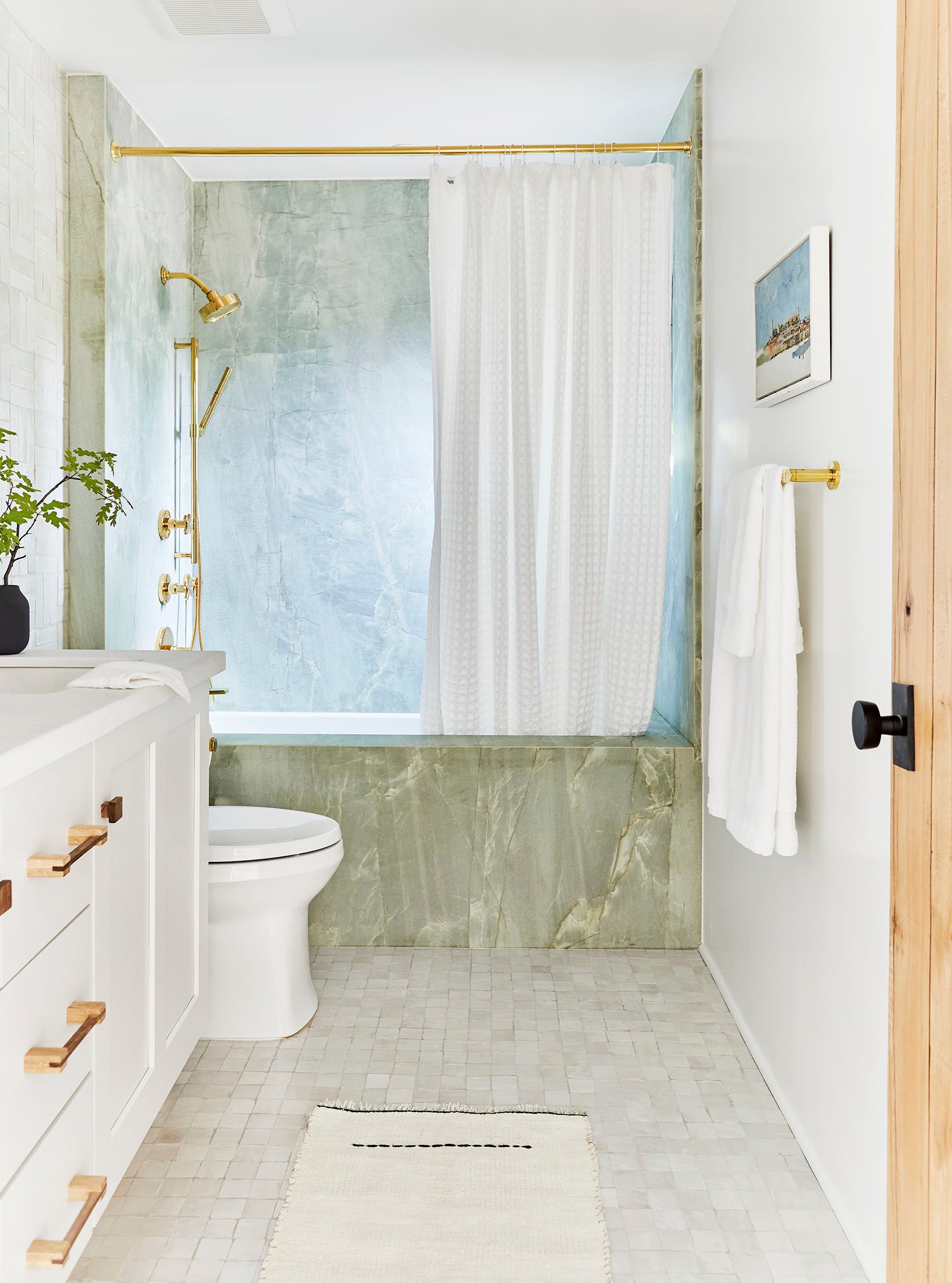
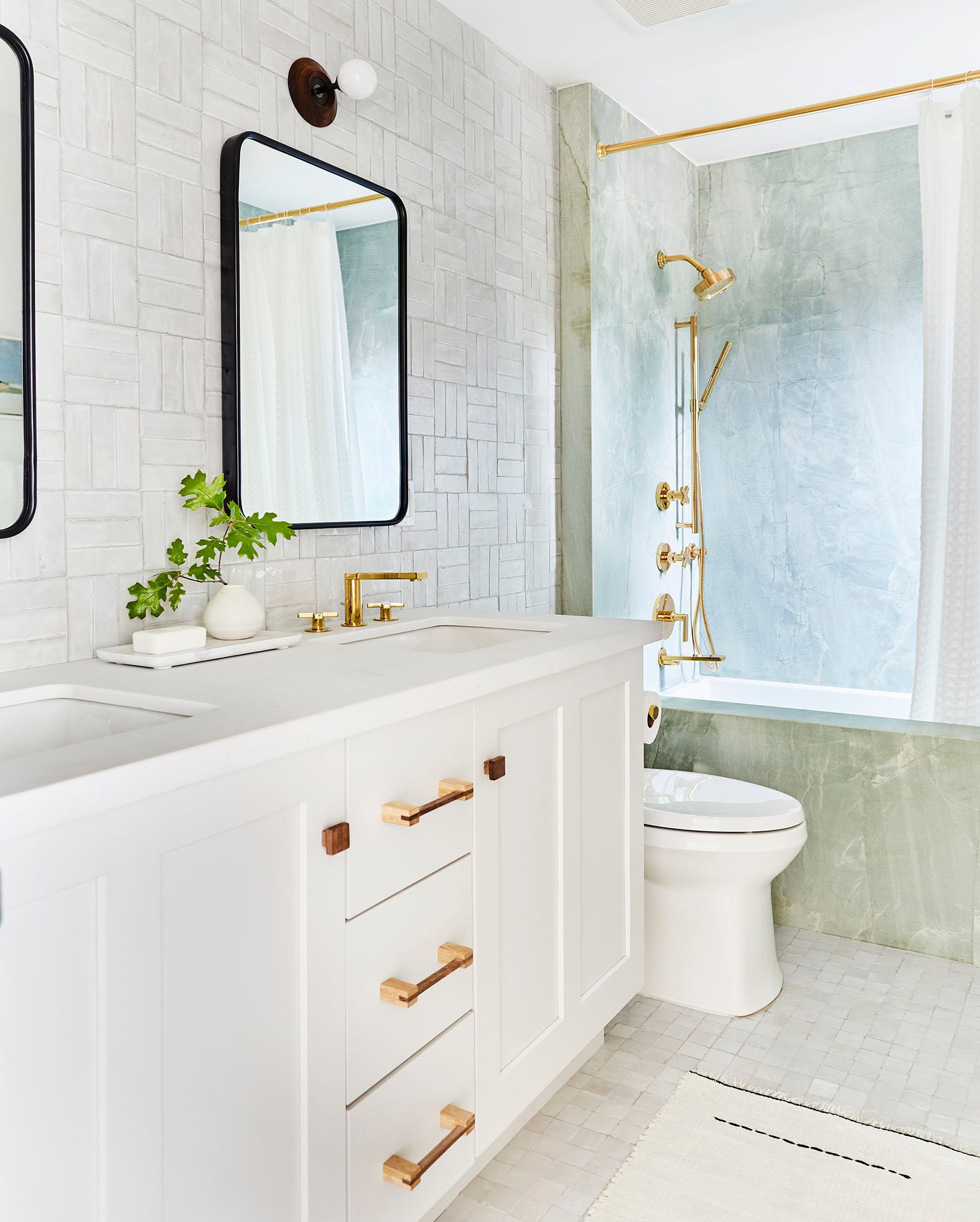
This is why many designers get into hotels and restaurant design – these spaces are meant to be more “of the moment” and need to function as temporary spaces for a specific type of enjoyment. You don’t stay there long enough to be annoyed that the table is too high for the chair, or that there isn’t enough storage in the hotel room. You have more creative freedom because the expectation is a one-time experience, so doing something that feels “now” and not necessarily timeless is the fun part (and is often the expectation with a new hotel or restaurant). But since this is our home and we have kids/pets, it’s just harder because this has to work for our daily family needs. And yet this is our opportunity to push the boundaries, and do something fresh and original. I feel like I did this in some ways (our sunroom, the tile in the kid’s bathroom, our vanity wall) but for the most part, it’s just really pretty and timeless – not necessarily full of these big design swings. But the line between timeless and boring/generic is very thin and I found myself close to it many times during the design process. Obviously, I am very privileged with my budget and partnerships so I could invest in things like more laborious tile installs (sunroom and our bathroom floor) but many designers don’t actually have the budget that their clients do. I know I didn’t when I had clients – it’s a luxury service and the chances that an interior designer has a million dollars to remodel their own home is extremely low. So you have to find more creative ways to take risks, which is honestly a really fun challenge, but also if those risks don’t work for your family then what? For instance, I had collected all of these vintage plaids for like two years, and I had around 30 yards in total. I thought it would be so fun to do a sectional in them – all patchworked, but as I got closer to executing the idea I just knew that it wasn’t going to be as functional as I wanted (the fabric is old, worn, tears easily, and it wasn’t soft either). It would also be such an expensive risk to take (10k to customize a sectional with my plaid upholstery, not to mention using up all my vintage plaids which are irreplaceable). I wanted it for photos so badly, and I knew that I could style it to be so special – but it wasn’t going to function as well for our dogs/kids and I could see myself apologizing for it to guests as they sat down to ripped up upholstery… So the big swings that we want to take are harder to do in our own homes because striking out can be a really expensive bummer that again, you have to either live with or fix. All good stuff – excellent challenges, but it leads to a lot of time obsessing about the small stuff.
The Expectations Of A Designers Home Are Extremely High
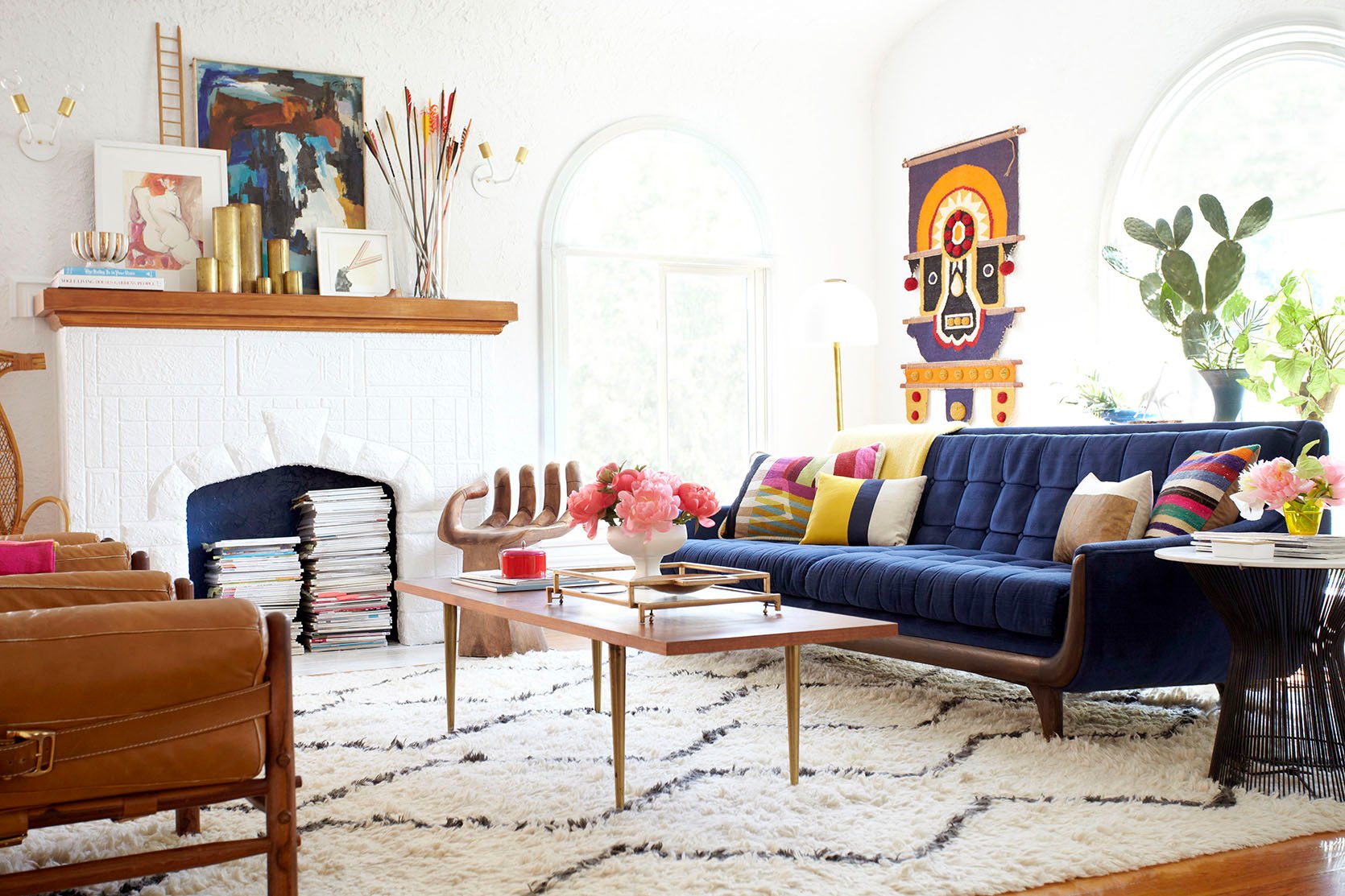
I remember in 2011 when I had a literal design TV show but very little money, I invited some new friends over to our apartment (they were in a higher economic bracket in Hollywood). I had just won DesignStar and they knew about the show, so when they came over I could see the palpable disappointment and confusion on their face when they looked around. We lived in a small one-bedroom in LA (on Los Feliz Blvd) and most of my stuff was vintage or IKEA. I wasn’t embarrassed before that moment – I liked my stuff (and it shot well), and then one of them said, “Oh I see, you are like the thrift store girl”. They weren’t being snarky, but instead more like they understood. They didn’t have the eye to know good vintage over just “used stuff,” so to them, that was what it looked like – fun and thrifty. I obviously remember this well and it didn’t make me feel good (they weren’t dicks, just surprised). The disappointment around the expectation that I would have an incredibly dialed-in designer home was just so palpable. I wondered if I would ever meet any future guest’s expectations. People will say they don’t care if our house is messy. People will of course say they won’t judge, but y’all – everyone does. Not because they are assholes, but because it’s human nature! It’s similar to going to a dinner party at a famous chef’s home – your expectations of getting a delicious meal are higher than other friends’ cooking, even if it’s just a BBQ. It’s just part of moving through this world while having this job, and that’s ok, honestly! But yes, it increases the pressure (and I think makes us all a bit agoraphobic). We are considering having some fundraisers for our school next year once the property is done (outdoor movie night!) and already I have anxiety about it – and let me be clear – this house is objectively very pretty, I know this intellectually. I have a nice house with pretty things in it, but still opening up my home (and work) to so many people feels incredibly vulnerable to their judgments and the gossip that will absolutely ensue. Somehow doing it on the internet is so much easier, but I know that when I mess up it’s a gossip storm – which is absolutely OK, but to pretend it doesn’t add pressure is false.
It’s A Representation Of Our Creativity And Skills -AKA It’s A Living Resume For Future Work
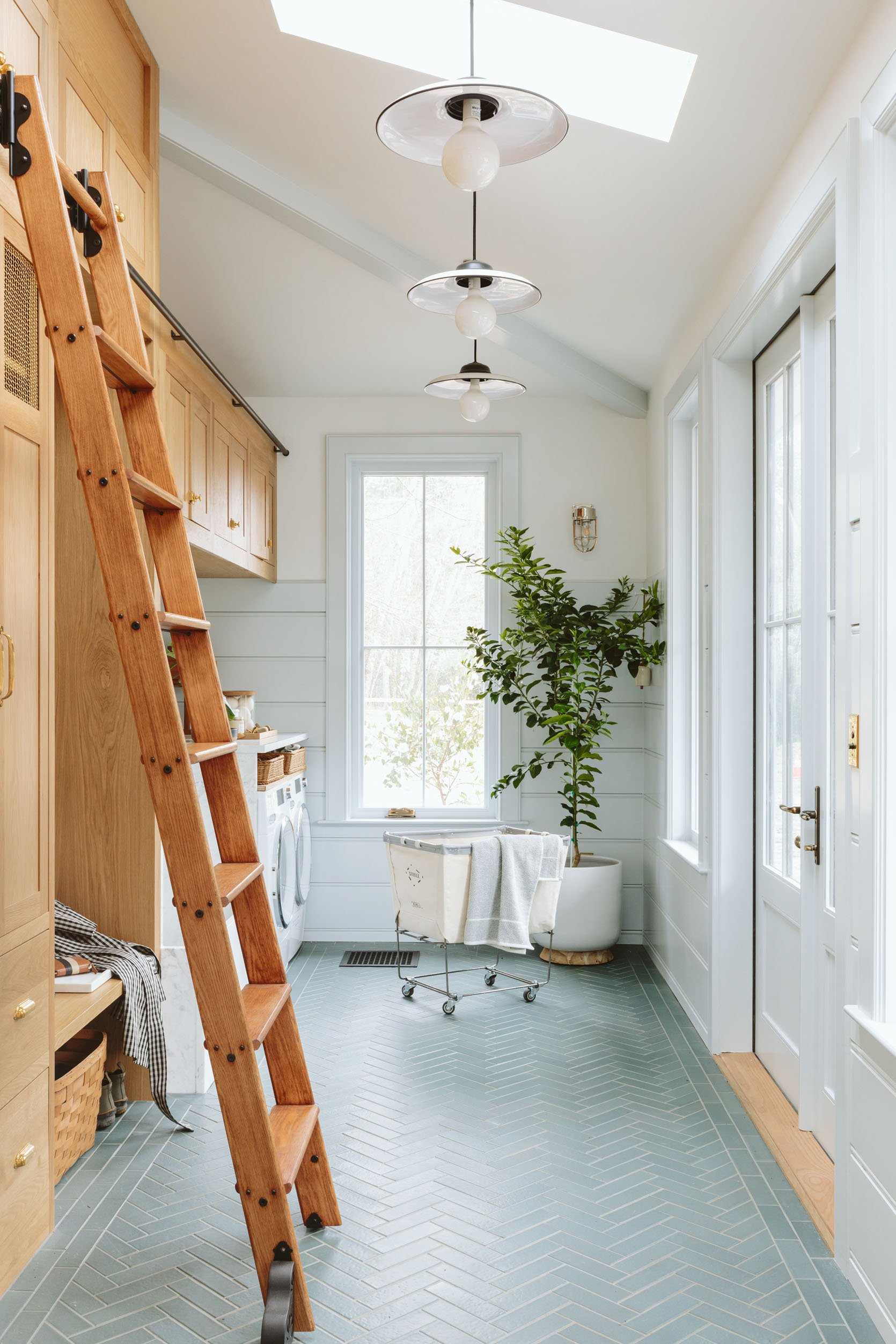
Besides the emotional fear component, it’s literally our livelihood and how we support our families. There is this feeling that when it comes to our home there is no excuse for a bad design. You can easily excuse away a bad client choice and say, “Well they really wanted this weird color, but I tried to persuade them against it” or “They already had that sofa and I was forced to work it into the design”. But when the designer is the client, you theoretically have free reign creatively. Of course, you do NOT always have free reign with budgets (which again, is another expectation that is wrong). But creatively, your home is your laboratory and each room is a song on your debut studio album (I just finished reading and watching Daisy Jones & The Six, FYI, thus the band analogies). For me, since we don’t currently do client work outside of partnerships, this home HAS to perform well for our partners in order to get the next round of partnerships to keep the company going. The skylights have to be highlighted well, which means I’ll panel the ceilings. The furniture has to be showcased inside an architecturally interesting space with excellent natural light so I’ll add a window that we might not have otherwise. You simply can’t put a partner’s product in a mediocre environment (at least not at this level) or else you will disappoint them, the world will see the mediocrity, and future clients/partners won’t come after you. So you have to spend a lot more to create the environments to ensure that your home, your portfolio, sings on so many levels.
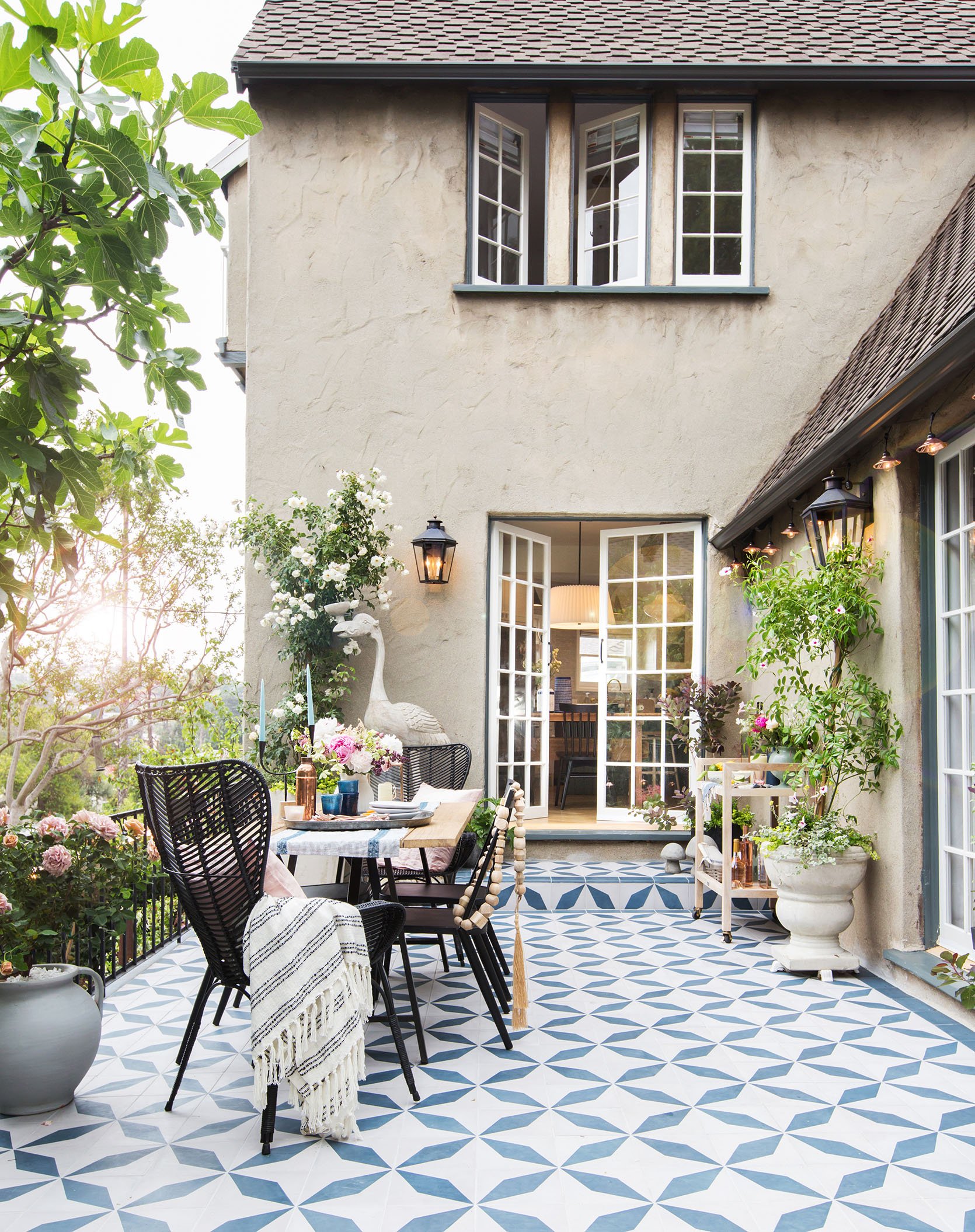
It’s all good stuff, and frankly, I’ve gotten pretty used to the stress of it (it’s “challenge stress,” not the bad stress). But that doesn’t mean I don’t get super frustrated with myself when I know I’m taking too long to make a decision, or very disappointed with myself when I make even a minor infraction. And that’s ok! I give myself more breaks by framing it like other artists – i.e. a band putting out their debut album, a writer and editor obsessing over every word in a first book, or a chef producing a follow-up book to their #1 selling cookbook. Caring about our jobs is a great thing and obsessing over the details is a by-product of the creative careers we are fortunate to be able to do all day. While the word passion gets wildly overused, that is what it is – obsessing has a negative connotation, but passionately tuning into every detail is exactly what it is.
Once again going through this process gives me so much compassion for literally everyone else trying to pull together their home. People might think that I would judge others’ homes if I came over, y’all, I know how much it takes to pull together a home and it’s just so much. I have a team of people, and I get to spend a lot of time on my own home, I have partnerships and resources and even then I still have so much to do and so many excuses for what’s not done yet. If you have a job, kids, and a tight budget that task is so close to impossible to do quickly. So no, I honestly don’t judge and at times am very relieved just to be around friends in a home where the design isn’t the focus and we can all just hang.
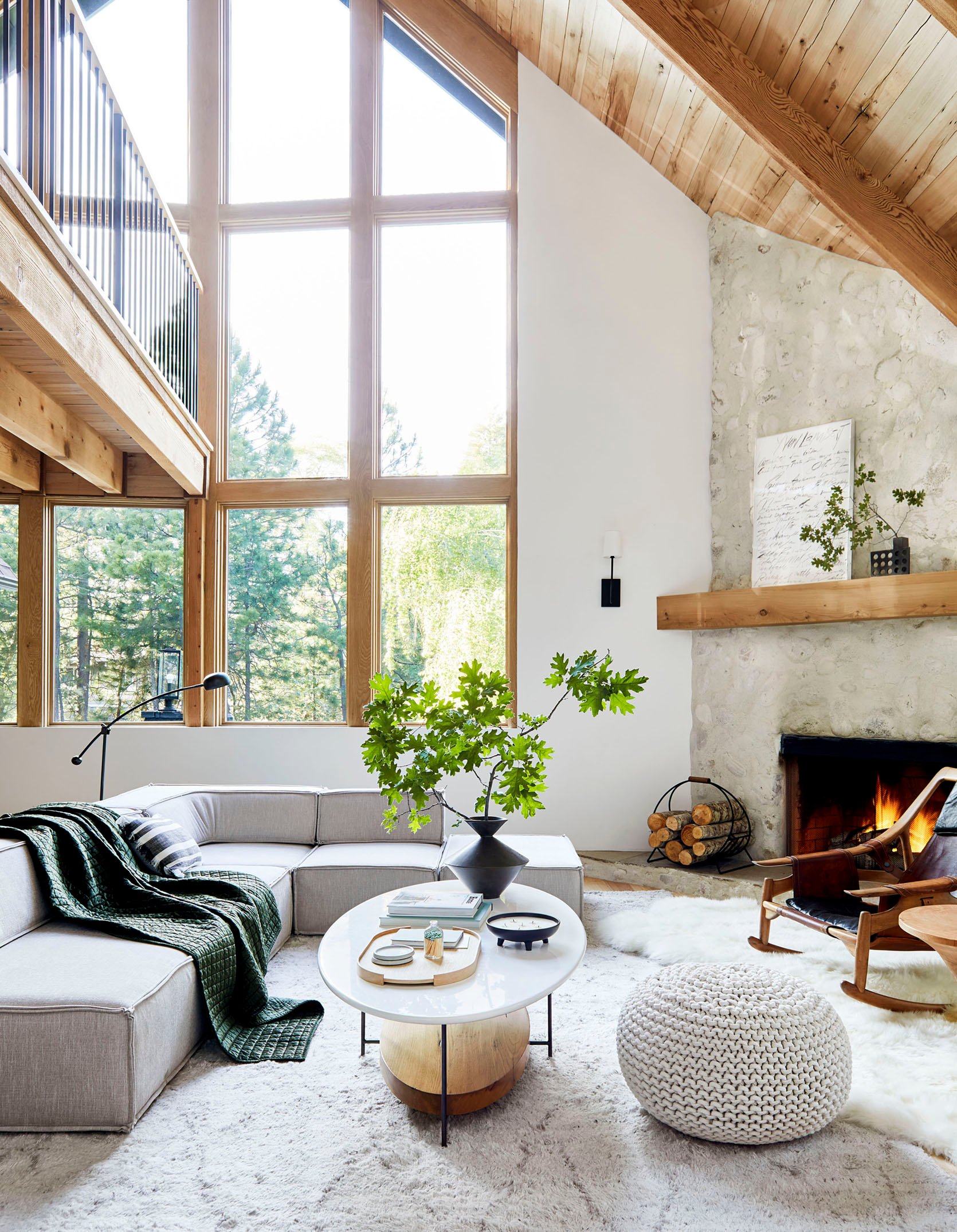
So if you are a designer (or want to be) or a content creator (or want to be) or both, I hope that you can relate to this and it can make you feel a bit better about your indecision or the times when you feel like you might be losing it. It’s ok to almost lose it in the pursuit of creativity. It’s part of the job. I also think that since this is a female-dominated world that this “obsessing” has more of a negative connotation. Does an accountant obsess about the numbers on the spreadsheet being accurate? Of course! Does a lawyer obsess over the transcripts of a deposition? Yes. But if it’s a creative career, specifically in the domestic space, there is this outside perception that I’m just being nutty and need to get pulled down to earth, that it’s not “that big of a deal”. So from here on out I’m going to frame my “obsession” more as “passion” (while it’s hard for me to use that word) and yes, we as designers/content creators are very, very, passionate about every design decision in our home. I, personally, love seeing other designers think over and over and over their own home details, and pivot or change when things just don’t hit the mark. It’s all good stuff and part of the fortunate creative career that we are lucky enough to be pursuing every day.
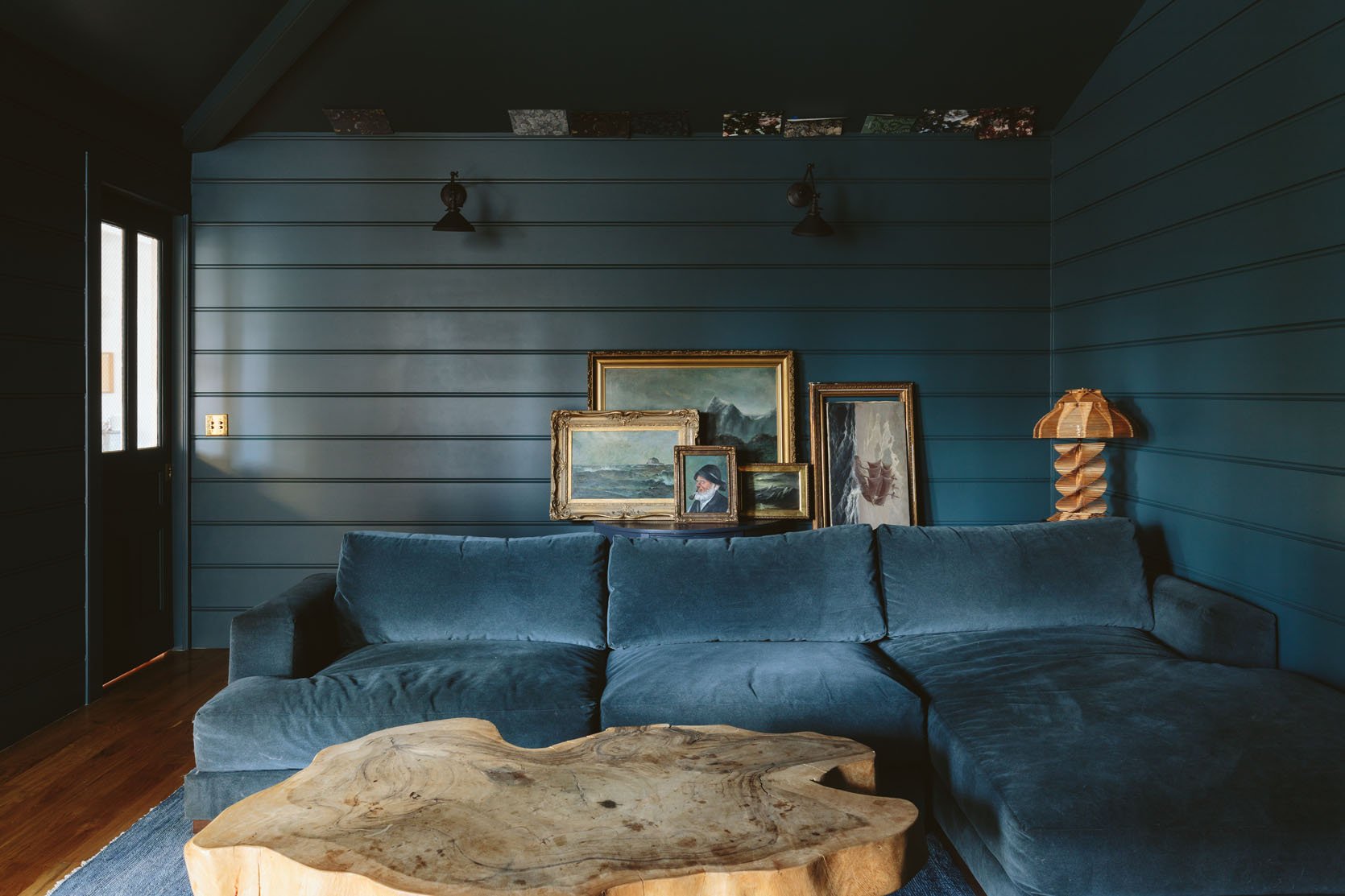
Ok. That is all. I’m off to hang a seascape gallery wall and passionately obsess over it 🙂 Thanks for reading my journal entry – it’s something I’m going to be doing more and more here. Our new comment policy (of moderating and not auto-publishing the hate/mean stuff) has given me and my team more freedom to write what I/we want to write knowing that there won’t be a firestorm of toxicity if we look away for one second – which is usually just 2-3 people, BTW. Kind criticism is always welcome – I love a good dissent and dialogue – I learn so much from you, honestly, but if you find yourself constantly wanting to write something negative here in hopes of derailing our day, simply don’t read this blog as it might not be the right fit for you. I have missed just being able to write in a safe space and have so many personal drafts unpublished (the internet seven years ago was totally different), so I’m excited to do it more for those who are interested. Thanks, per usual, for reading. xx
Opening Image Credits: Photo by Sara Ligorria-Tramp | From: Styling To Sell: How We Staged Our Dining Room And Kitchen (With The Changes I Should Have Done Years Ago!)
THIS POST WAS ORIGINALLY PUBLISHED HERE.


